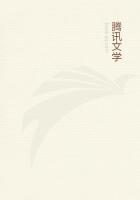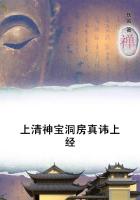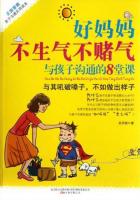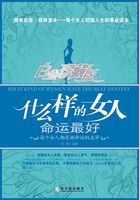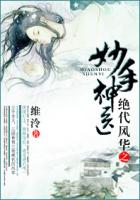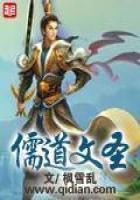Before going to the dressmaker's yesterday, I spent five minutes learning the Italian for the expression "This blouse bags; it sits in wrinkles between the shoulders." As this was the only criticism given in the little book, I imagined that Italian dressmakers erred in this special direction. What was my discomfiture to find that my blouse was much too small and refused to meet. I could only use gestures for the dressmaker's enlightenment, but in order not to waste my recently gained knowledge, I tried to tell a melodramatic tale of a friend of mine whose blouse bagged and sat in wrinkles between the shoulders. It was not successful, because I was obliged to substitute the past for the present tense of the verb.
Somebody says that if we learn the irregular verbs of a language first, all will be well. I think by the use of considerable mental agility one can generally avoid them altogether, although it materially reduces one's vocabulary; but at all events there is no way of learning them thoroughly save by marrying a native. A native, particularly after marriage, uses the irregular verbs with great freedom, and one acquires a familiarity with them never gained in the formal instruction of a teacher. This method of education may be considered radical, and in cases where one is already married, illegal and bigamous, but on the whole it is not attended with any more difficulty than the immersing of one's self in a study day after day and month after month learning the irregular verbs from a grammar.
My rule in studying a language is to seize upon some salient point, or one generally overlooked by foreigners, or some very subtle one known only to the scholar, and devote myself to its mastery. A little knowledge here blinds the hearer to much ignorance elsewhere. In Italian, for example, the polite way of addressing one's equal is to speak in the third person singular, using Ella (she) as the pronoun. "Come sta Ella?" (How are you? but literally "How is she?")
I pay great attention to this detail, and make opportunities to meet our padrona on the staircase and say "How is she?" to her. I can never escape the feeling that I am inquiring for the health of an absent person; moreover, I could not understand her symptoms if she should recount them, and I have no language in which to describe my own symptoms, which, so far as I have observed, is the only reason we ever ask anybody else how he feels.
To remember on the instant whether one is addressing equals, superiors, or inferiors, and to marshal hastily the proper pronoun, adds a new terror to conversation, so that I find myself constantly searching my memory to decide whether it shall be:
Scusate or Scusi, Avanti or Passi, A rivederci or Addio, Che cosa dite? or Che coma dice? Quanto domandate? or Quanto domanda? Dove andate? or Dove va? Come vi chiamate? or Come si chiama? and so forth and so forth until one's mind seems to be arranged in tabulated columns, with special N.B.'s to use the infinitive in talking to the gondolier.
Finding the hours of time rather puzzling as recorded in the "Study of Italian Made Easy," I devoted twenty-four hours to learning how to say the time from one o'clock at noon to midnight, or thirteen to twenty-three o'clock. My soul revolted at the task, for a foreign tongue abounds in these malicious little refinements of speech, invented, I suppose, to prevent strangers from making too free with it on short acquaintance. I found later on that my labour had been useless, and that evidently the Italians themselves have no longer the leisure for these little eccentricities of language and suffer them to pass from common use. If the Latin races would only meet in convention and agree to bestow the comfortable neuter gender on inanimate objects and commodities, how popular they might make themselves with the English-speaking nations; but having begun to "enrich" their language, and make it more "subtle" by these perplexities, centuries ago, they will no doubt continue them until the end of time.
If one has been a devoted patron of the opera or student of music, one has an Italian vocabulary to begin with. This, if accompanied by the proper gestures (for it is vain to speak without liberal movements, of the hands, shoulders, and eyebrows), this, I maintain, will deceive all the English-speaking persons who may be seated near your table in a foreign cafe.
The very first evening after our arrival, Jack Copley asked Salemina and me to dine with him at the best restaurant in Venice.
Jack Copley is a well of nonsense undefiled, and he, like ourselves, had been in Italy only a few hours. He called for us in his gondola, and in the row across from the Giudecca we amused ourselves by calling to mind the various Italian words or phrases with which we were familiar. They were mostly titles of arias or songs, but Jack insisted, notwithstanding Salemina's protestations, that, properly interlarded with names of famous Italians, he could maintain a brilliant conversation with me at table, to the envy and amazement of our neighbours. The following paragraph, then, was our stock in trade, and Jack's volubility and ingenuity in its use kept Salemina quite helpless with laughter:-Guarda che bianca luna--Il tempo passato--Lascia ch' io pianga--Dolce far niente--Batti batti nel Masetto--Da capo--Ritardando--Andante--Piano--Adagio--Spaghetti--Macaroni--Polenta--Non e ver--Ah, non giunge--Si la stanchezza--Bravo--Lento--Presto--Scherzo--Dormi pura--La ci darem la mano--Celeste Aida--Spirito gentil--Voi che sapete--Crispino e la Comare--Pieta, Signore--Tintoretto--Boccaccio--Garibaldi--Mazzini--Beatrice Cenci--Gordigiani--Santa Lucia--Il mio tesoro--Margherita--Umberto--Vittoria Colonna -Tutti frutti--Botticelli--Una furtiva lagrima.



